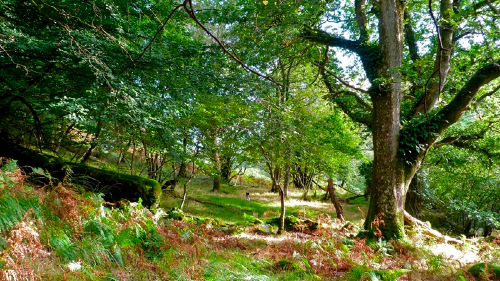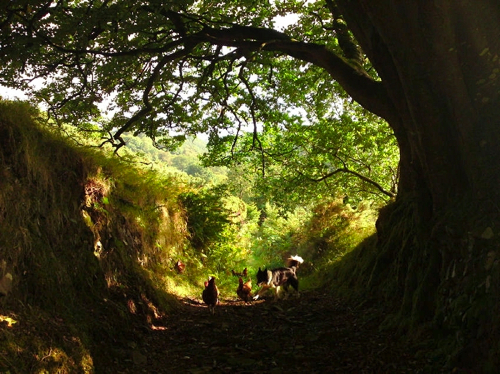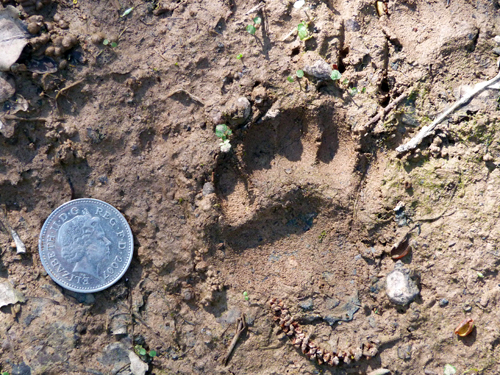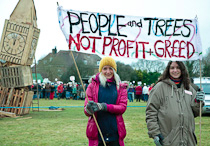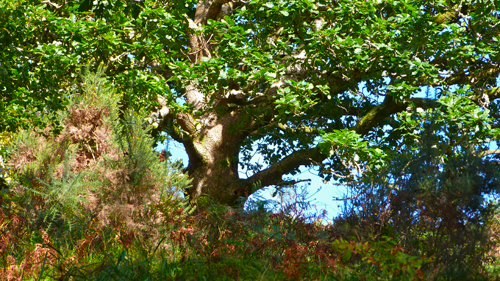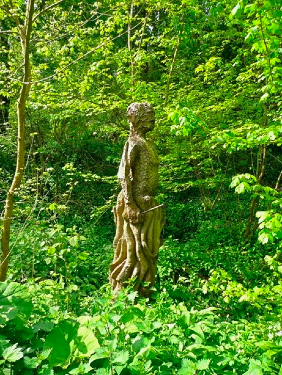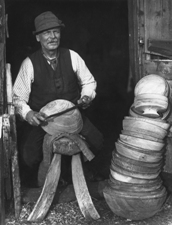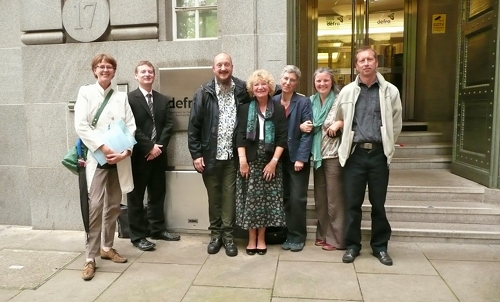
After our meeting, from left to right: Kim Taylor (Keep Our Forests Public), Mark Davis (Save Cannock Chase), Rich Daniels (Hands Off Our Forest & Our Forests), Anne Mason (Friends of Thetford Forest), Imogen Radford (Save Sandlings Forest), Hen Anderson (Save Our Woods & Our Forests), Alan Spidy (Friends of Thetford Forest)
Lord Taylor of Holbeach is the Minister responsible for domestic forestry in England and responsible for responding to the forestry panel’s report.
He invited grassroots forest campaigners to send a small group to meet him so that he could hear our views in advance of the Independent Panel on Forestry report on what we hope to see from the report and the government follow-up, and also to discuss how best to engage with us over the next period.
Our aims for the meeting were:
- to put across the key points that forest campaigners have been making, using the statement which a large number of forestry campaign groups signed up to recently.
- to secure a strong line of communication between forest campaigners and policy makers for the coming months, a crucial period during which the Government will be making their decisions on the future of our forests.
Lord Taylor made it clear that there would be no detailed response from the government on the publication of the report, that Caroline Spelman would make a short statement to acknowledge it, and that the government would be responding by January 2013. They are aiming for cross-party consensus on policy, and over the next six months detailed work would be done.
“We believe that public ownership of the Public Forest Estate must be secured, through new legislation. The rich cultural, historical and natural diversity of our forests and woods, and full access to them, is best protected under the continued stewardship of the Forestry Commission, fully resourced to sustainably manage and expand our multi-purpose Public Forest Estate now and in the future.”
We read out the forest campaigns statement, and were able to get over the key points in it: that the public forest estate should be publicly owned, fully resourced, but not by forest sales, the importance of a sustainably managed multipurpose accessible public forest estate, run by the Forestry Commission which also has essential roles in promoting good forestry and woodland management, climate mitigation and Forest research, and that the public forest estate should be expanded with resources to match.
We illustrated these points with examples and statistics from the forests we were familiar with and from other forests in order to make it clear that though there were a variety of different types of forests, and specific issues and concerns locally and regionally, there were many key points that applied across the whole public forest estate.
We also took the opportunity to make more detailed points on access, on the work between local organisations and FC, of the way that FC manages the timber, wood fuel and other economic activities as well as recreation and access, habitat and environmental concerns, and the cultural and archaeological aspects of our various forests.
The minister recognised the fact that the PFE varies locally and at the same time the wider picture was important. He spoke positively about increasing tree-planting, about woodland management and importance of commercial and public forestry. He spoke about economic sustainability of the forests and asked how we could get more money into forestry, and he also spoke about community connection with the PFE.
We emphasised that the FC/PFE was good value for money, that it should be able to keep the money it raises to reinvest into the PFE, and that community ownership of forests was impractical other than on a very small scale and instead we need professionals to run the PFE and work in partnership with communities.
We discussed how campaigners could communicate directly with the government as key stakeholders over the coming months and the minister was positive about a further meeting and ongoing communications with DEFRA.













